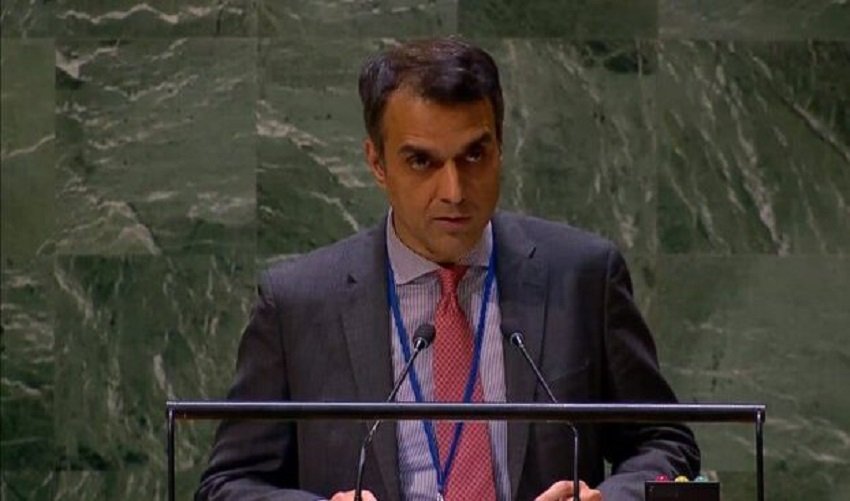United Nations (TDI): Pakistan has reiterated its commitment to enhancing the role of the United Nations General Assembly, emphasizing that a strengthened Assembly is critical for peaceful resolution of global disputes, fostering international peace, and addressing the thematic challenges of today.
These include areas like environmental peace, women’s security, and the interconnected goals of peace, development, and human rights, said Pakistan’s Acting Permanent Representative to the UN, Ambassador Usman Jadoon, during a debate on revitalizing the Assembly’s work.
Ambassador Jadoon stressed that the Assembly is unique in its universal representation, but noted that its efficacy is hindered by the reluctance of certain key member states, which restricts the full potential of the body.
While the Security Council holds primary responsibility for global peace, the Assembly has broad, complementary authority, especially when the Security Council is unable to act.
Highlighting the importance of accountability, Ambassador Jadoon suggested the establishment of a mechanism within the Assembly to track and assess the implementation of its resolutions, proposing that the UN Secretariat provide regular reports on resolution statuses.
Also Read: Pakistan Demands UNSC Action for Gaza Ceasefire
He further expressed concern over the Security Council’s frequent use of Chapter VII, which mandates enforcement action, as this sidesteps the inclusive and democratic processes envisioned in the UN Charter.
In calls for reform, Pakistan advocated that treaties on critical global issues such as tax, development, and environment be negotiated within the Assembly to ensure equal participation from all member states.
Call for Greater Representation
During the debate, several countries, including Costa Rica, voiced a need for gender representation at the UN’s highest levels, urging the selection of a female Secretary-General to lead the organization.
“How can the UN truly promote women’s empowerment when women are absent from its highest office?” questioned Costa Rica’s representative.
The delegate also pointed to the use of male pronouns in the UN Charter, describing it as an institutionalized form of sexism.
A delegate from Slovenia, speaking on behalf of a coalition of member states, echoed these sentiments, underscoring that gender equality and women’s representation in leadership are crucial not only for the UN’s operational efficacy but also for its public perception, particularly among young women and girls worldwide.
Also Read: UN Body Commends Pakistan’s Improved Human Rights Record
The delegate emphasized that women’s active participation is essential to achieving the UN’s objectives across peace and security, human rights, and sustainable development.
As the debate concluded, member states underscored the need for a reformed and inclusive UN General Assembly capable of addressing both age-old and emerging global challenges.
Farkhund Yousafzai is an Associate Editor at The Diplomatic Insight.



